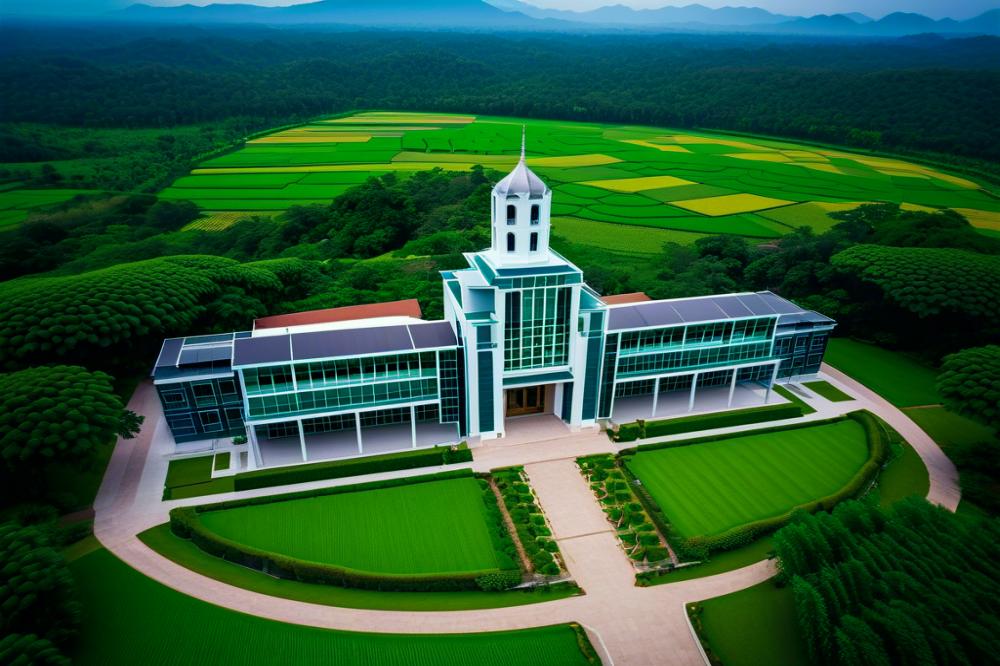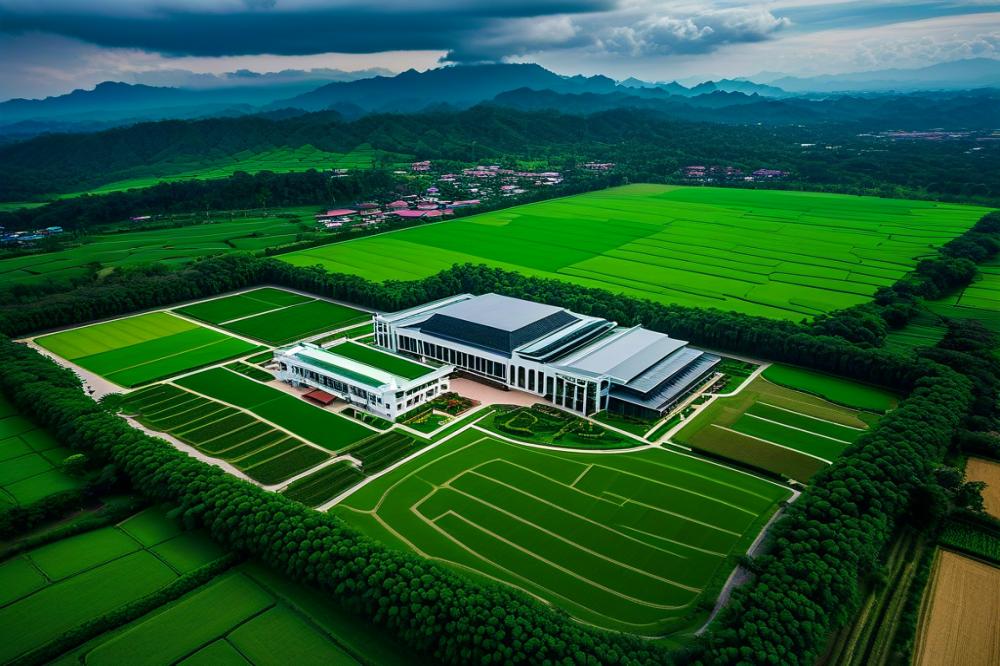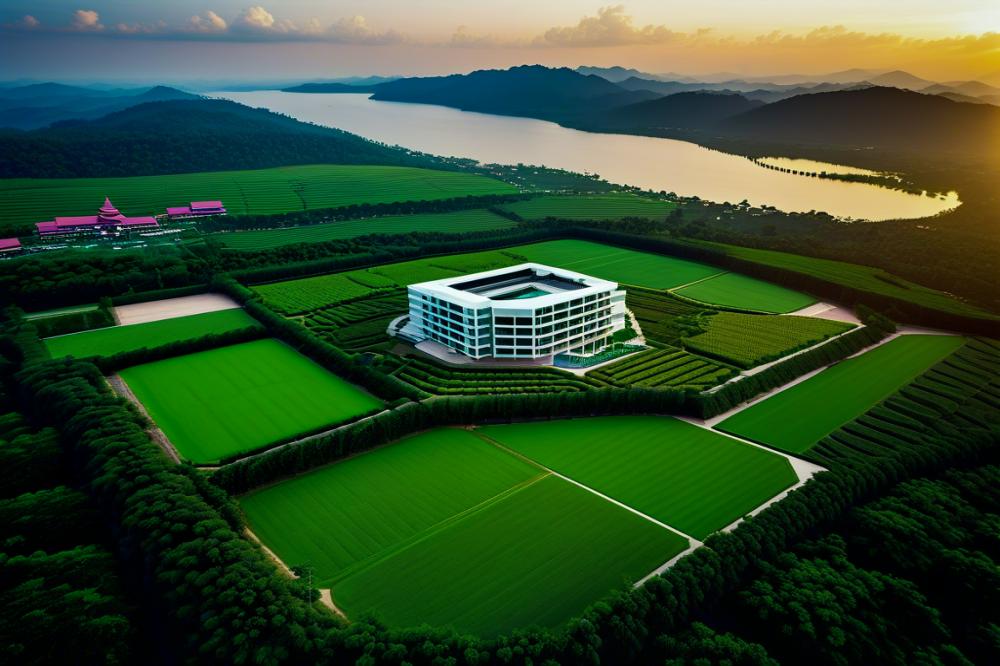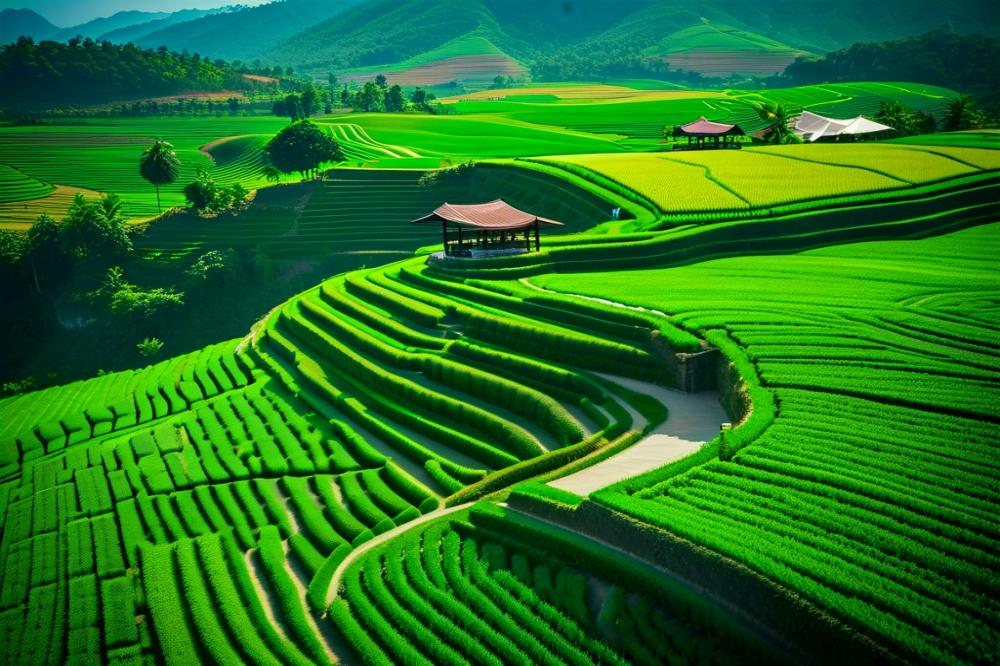Exploring the Highland research and Development Institute
The Highland research and Development Institute stands out as a vital stop for adventure travelers passionate about agriculture and eco-tourism. Nestled in the picturesque region of Chiang Mai, this destination offers so much more than just beautiful scenery. It’s a hub of research and innovation, focused on sustainable farming practices that benefit both the land and its people.
Agricultural research here aims to enhance crop diversity, which is vital in supporting local communities and their unique needs. In doing so, the institute plays a crucial role in uplifting the hill tribes who inhabit the surrounding areas. These communities benefit from the institute’s findings, gaining access to improved farming techniques that can boost their livelihoods.
Visitors can engage with the projects that emphasize sustainability and ecological balance. Tours offer insights into innovative farming methods and highlight the hard work being put into preserving the environment. Travelers actively participating in such initiatives can witness firsthand the intersection of adventure and purpose. Eco-tourism gains new meaning here, as adventure seekers contribute to the well-being of the region while enjoying its natural beauty.
Chiang Mai attractions include everything from vibrant markets to breathtaking mountain views, yet the Highland Research and Development Institute provides a unique opportunity to delve deeper into the culture and practices that sustain the local communities. This engaging experience enriches one’s understanding of the importance of agriculture and its impact on hill tribes. Visiting this remarkable institute creates lasting memories and helps cultivate respect for the land, its people, and the innovative practices that thrive within it.
Overview of the Highland Research and Development Institute

Located in Chiang Mai, the Highland Research and Development Institute has a rich history rooted in promoting agricultural advancement. Established to support the hill tribes and other local communities, it aims to uplift their farming practices. The mission focuses on sustainability and innovation. Researchers work tirelessly to develop new methods that help farmers thrive.
Crop diversity is a cornerstone of the institute’s efforts. By studying various plant species, they discover ways to enhance yields and resilience against pests. This research plays a vital role in improving food security for the northern regions of Thailand. Farmers benefit directly from these findings, which translates into better harvests.
Innovative agricultural practices are another key aspect of this organization. They combine traditional knowledge with modern science. This blend creates methods that are environmentally friendly and effective. The support for sustainable farming not only helps the land but also empowers the communities that depend on it.
Visitors to Chiang Mai attractions often find inspiration from the institute’s success. Eco-tourism initiatives showcase sustainable farming, encouraging travelers to engage with local culture. This connection between agriculture and tourism is beneficial for everyone involved. It heightens awareness about the importance of supporting local communities.
Collaboration is central to the institute’s approach. They partner with farmers, local organizations, and academic institutions. This teamwork enhances the impact of their research and development efforts. Knowledge flows in multiple directions, creating a vibrant learning environment. Together, they tackle the challenges of modern agriculture head-on.
An underlying commitment to community well-being drives all initiatives. Workshops and training sessions provide valuable skills to farmers. Such support helps them to adopt new techniques and improve their livelihoods. Ultimately, the Highland Research and Development Institute embodies the spirit of progress while honoring the traditions of the hill tribes.
Research and Development Initiatives

The Highland Research and Development Institute in Chiang Mai hosts a variety of ongoing projects aimed at improving agriculture in the region. Innovations in sustainable farming practices are at the forefront. Researchers focus on developing methods that benefit both the environment and local communities, especially the hill tribes. These groups often rely on traditional farming techniques, which may not always be the most productive.
One project showcases how crop diversity can lead to better yields and sustainable practices. By introducing farmers to new, hardy crops, the institute helps promote eco-friendly agriculture. This not only supports the environment but also boosts the income of smallholder farmers. Such initiatives often emphasize the importance of preserving local traditions while integrating modern agricultural science.
Technology plays a crucial role in these efforts. Advanced research incorporates data and tools that enhance crop management. For instance, precision farming techniques allow farmers to use resources more efficiently. This helps minimize waste and optimize yield, making it a win-win situation for everyone involved.
Efforts to support hill tribes reveal a commitment to inclusivity and fairness. These tribes possess a wealth of knowledge about the land. Researchers work alongside them, ensuring their insights shape the projects. This partnership fosters trust and paves the way for successful outcomes.
As you explore Chiang Mai attractions, engaging with the research initiatives at the institute highlights the region’s dedication to eco-tourism and sustainable practices. Visitors can witness how innovation and tradition can coexist harmoniously. Observing these developments inspires a deeper appreciation for the careful balance between local customs and modern methods.
Engagement with Local Communities

The Highland Research and Development Institute plays a crucial role in connecting with local communities and hill tribes around Chiang Mai. Programs designed to empower these groups focus on education and sustainable farming techniques. Not only does this support agricultural innovation, but it also strengthens community bonds.
Research conducted at the institute often reflects the needs and traditions of the hill tribes. Efforts to promote crop diversity are vital for enhancing food security in these areas. Farmers learn to utilize sustainable practices that not only protect the environment but also increase their yields. These methods are essential to ensure that communities thrive.
Education initiatives offer valuable resources to locals. Workshops on eco-tourism attract interest, helping them explore alternative income sources. By sharing knowledge, the institute promotes self-sufficiency and resilience among the hill tribes.
Activities by the organization involve the local population in every step. Engaging communities in research projects fosters a sense of ownership. People feel more invested when they contribute to the innovation process. This is crucial for long-term sustainable development.
The outcome of these programs is a blend of preserved traditions and modern techniques. Young people in the villages are taught not just farming skills but also the importance of understanding their heritage. This kind of holistic education helps bridge the gap between the past and future.
Moreover, these initiatives highlight the cultural richness of the local communities. Visitors to Chiang Mai attractions can witness this firsthand, as they engage with the hill tribes. Unique cultural experiences often lead to a greater appreciation of innovation and sustainability among tourists.
Collaboration with local communities is key to fostering positive change. Listening to their needs and aspirations helps shape more effective programs. Consequently, all parties involved benefit from this dynamic partnership.
Visitor Experience: What to Expect

When planning a visit to the Highland Research and Development Institute, prepare for an enriching experience. Visitors can participate in guided tours, which showcase the valuable research and development activities focused on sustainable farming. These tours often allow close-up views of crop diversity, helping guests understand how important this is for local agriculture.
Workshops are another great opportunity at this facility. Attendees can learn directly from experts about various techniques used for innovation in farming. Engaging with local communities, especially the hill tribes, adds a personal touch. Visitors learn about the unique agricultural practices that have been passed down through generations.
Eco-tourism plays a vital role in the overall experience. The institute promotes collaborations between tourists and local farmers. This interaction fosters a better understanding of their methods and challenges. Visitors often express appreciation for the opportunity to see sustainable farming in action. This helps highlight the importance of eco-friendly practices in a beautiful natural setting.
Educational programs are designed to cater to all ages. Schools and families alike can benefit from these informative sessions. They delve into the connection between research and agricultural sustainability. Such discussions not only inform but also inspire those who attend. Chiang Mai attractions like this one provide a chance to appreciate the hard work of local communities striving to maintain their traditions.
In addition to learning, visitors can enjoy the stunning landscape. The surrounding environment is dotted with lush greenery and vibrant crops. This creates a picturesque backdrop for all activities. The commitment to preserving these spaces reflects the institute’s dedication to sustainable practices. Such efforts make a visit both informative and visually rewarding.
Chiang Mai Attractions Near the Institute
Visiting the Highland Research and Development Institute offers a deep dive into sustainable farming and agriculture practices. However, Chiang Mai has much more to enchant visitors. Nearby temples are a great addition to your itinerary. Wat Phra Singh and Wat Chedi Luang are must-see sites showcasing stunning architecture and rich history.
Exploring cultural sites adds another layer to your experience. The Chiang Mai City Arts & Cultural Center provides insights into the local hill tribes and their unique traditions. Such places help visitors connect with local communities and appreciate their way of life.
Natural scenery enhances the adventure holiday experience. Doi Suthep, for example, is famous for its breathtaking views and serene environment. Hike to the temple atop this mountain for a rewarding experience. Nature lovers can also explore nearby waterfalls like Huay Kaew. The sound of flowing water and lush surroundings will refresh any traveler.
Eco-tourism activities abound in this beautiful region. Consider visiting local farms to witness cutting-edge research and development in crop diversity. Engaging in these activities fosters understanding of agricultural innovation. Additionally, eco-friendly tours often support community initiatives, allowing you to help local economies while enjoying your travels.
The cooperative atmosphere of this region makes it appealing to visitors. Engaging with locals can lead to unique experiences that stand out during your trip. From exploring temples to absorbing cultural richness, complementing your visit to the institute with these attractions will deliver an unforgettable holiday in Chiang Mai.
Final Thoughts
The Highland Research and Development Institute offers an important resource for those interested in sustainable farming and eco-tourism. Visitors will find a wealth of knowledge about innovative agricultural practices. This location serves as a vital hub for research and development, making it a must-visit for anyone looking to learn more about environmental conservation.
Exploring this institute allows travelers to engage directly with experts who are passionate about their work. Participants will not only gain insight into sustainable methods but also witness firsthand the impact these practices have on local communities. Interaction with local farmers and researchers can enhance your understanding of eco-friendly techniques.
Adventurous spirits will love finding this hidden gem amid the lush landscapes of Chiang Mai. Opportunities to learn about local crops and traditional farming methods abound. This experience can add a new dimension to your Thailand adventure holidays that you will treasure long after your visit.
Consider adding this educational opportunity to your itinerary. It combines learning with the beauty of nature. By taking part in the initiatives at the institute, you can contribute to a more sustainable future, enriching both your travel experience and your knowledge of eco-friendly practices.
Plan your visit today and be part of a meaningful journey towards understanding sustainable agriculture. Engage with a community dedicated to preservation and innovation. This adventure promises to be both enlightening and enjoyable.



